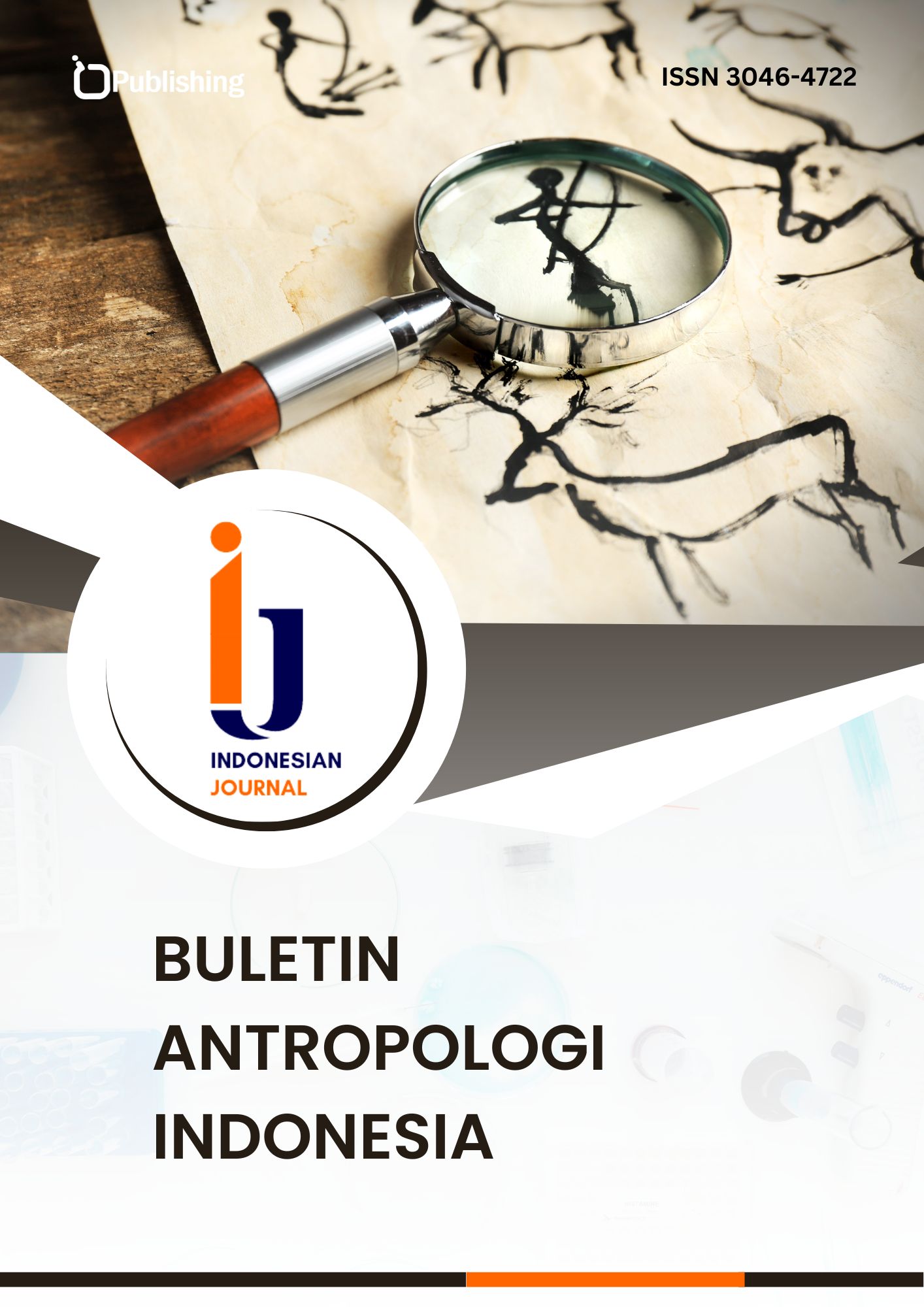Ibn Al-Arabi – A Prominent Representative Of Sufism
DOI:
https://doi.org/10.47134/bai.v2i2.3867Keywords:
Sufism, Theology, Spirituality, Humanity, Philosophy, Society, Culture, Development, Strategy, JurisprudenceAbstract
This study explores the life, teachings, and philosophical contributions of Ibn al-Arabi, a prominent figure in Sufism. The research aims to analyze his theological perspectives, particularly his concept of Wahdat al-Wujud (the unity of existence), and its significance in contemporary intellectual discourse.The study employs a historical-philosophical approach to examine Ibn al-Arabi’s works in their socio-cultural context. Comparative analysis is used to contrast his teachings with other Sufi scholars such as Rumi and Jili. Additionally, a philosophical-anthropological method is applied to interpret his views on human existence and spiritual development. The findings highlight Ibn al-Arabi’s profound influence on Islamic philosophy and spirituality. His works emphasize the interconnectedness of divine essence and the material world, shaping the Sufi intellectual tradition. The study also discusses the relevance of his ideas in modern times, particularly in the context of Uzbekistan’s efforts to promote its intellectual heritage.By analyzing Ibn al-Arabi’s doctrines, this research provides new insights into the philosophical and theological foundations of Sufism. It underscores the importance of studying classical Islamic thought to understand contemporary spiritual and intellectual movements.
References
Almirzanah, S. (2020). God, humanity and nature: Cosmology in Islamic spirituality. HTS Teologiese Studies / Theological Studies, 76(1), 1-10, ISSN 0259-9422, https://doi.org/10.4102/hts.v76i1.6130
Beldio, P.M. (2022). Meher Baba’s Spirituality of Sustainability and Transformation. Sustainable Development Goals Series, 187-196, ISSN 2523-3084, https://doi.org/10.1007/978-3-030-79301-2_22
Bragazzi, N.L. (2018). Neurotheology of Islam and higher consciousness states. Cosmos and History, 14(2), 315-321, ISSN 1832-9101
Decree of the President of the Republic of Uzbekistan No. PF-60, dated January 28, 2022, On the Development Strategy of New Uzbekistan for 2022-2026 // https://lex.uz/uz/docs/-5841063
Homidjon Homidiy. Scholars of Sufism. -Tashkent: Sharq, 2004, p. 22.
Ibn al-Arabi. Futuhat al-Makkiyya. Vol. 3. Turkey, 2006, p. 270.
Khairullaev M.M. The Renaissance Period and the Eastern Thinker. -Tashkent: Fan, 1971, p. 145.
Khalil, A. (2020). Sufism and Qur’ānic ethics. Routledge Handbook on Sufism, 159-171, https://doi.org/10.4324/9781315175348-13
Kholmuminov J. The Philosophy of Wahdat al-Wujud and Its Influence on the Naqshbandi Doctrine (Based on the Views of Ibn al-Arabi, Muhammad Porso, and Abdurahman Jami). Doctor of Philosophy (DSc) dissertation. Tashkent, 2020, pp. 20-21.
Mitha, K. (2019). Sufism and healing. Journal of Spirituality in Mental Health, 21(3), 194-205, ISSN 1934-9637, https://doi.org/10.1080/19349637.2018.1464423
Musa, A.F. (2023). The Philosophical Sufism of Harun Nasution: A Phenomenological-Historical Investigation of The Influence of Neo-Mu’tazilism. Intellectual Discourse, 31(2), 325-344, ISSN 0128-4878, https://doi.org/10.31436/id.v31i2.2054
Picken, G. (2011). Spiritual purification in Islam: The life and works of al-Muhasibi. Spiritual Purification in Islam: The Life and Works of al-Muhasibi, 1-252, https://doi.org/10.4324/9780203835043
Reda, N. (2024). Christian Practical Theology and Islam: Disciplinary Intersections and Opportunities for Growth. International Journal of Practical Theology, 28(2), 173-189, ISSN 1430-6921, https://doi.org/10.1515/ijpt-2023-0046
Sanseverino, R.V. (2023). Engaging Modern Muslims with Their Prophet. Arabica, 70(4), 527-553, ISSN 0570-5398, https://doi.org/10.1163/15700585-12341657
Saritoprak, Z. (2017). Islamic Spirituality: Theology and Practice for the Modern World. 1-238.
Shaikh, S. (2012). Sufi narratives of intimacy: Ibn 'Arabī, gender, and sexuality. 1-287.
Sinani, B. (2024). Normative Spirituality in Wahhābī Prophetology: Saʿīd b. Wahf al-Qaḥṭānī’s (d. 2018) Raḥmatan li-l-ʿĀlamīn as Reparatory Theology. Religions, 15(5), ISSN 2077-1444, https://doi.org/10.3390/rel15050543
Sobirovich, T. B. (2020). Evolution of ideas and views on the development of democratic society and spiritual renewals. Scientific Bulletin of Namangan State University, 10, 243-250.
Sobirovich, T. B. (2024). Renewal of Societal Ideosphere: An Analytical Study of Medieval Philosophical Thought. Philosophy, 8(3), 12-18.
Stepanyants M.T. Philosophical Aspects of Sufism. - Moscow: Nauka, 1980, pp. 8-28.
Tajdin, M. (2021). The Possibility of Religious Experience in Islamic Theology. Al-Shajarah, 26(2), 219-240, ISSN 1394-6870, https://doi.org/10.31436/shajarah.v26i2.1173
Turdiyev, B. S. (2021). Cultural and educational development of society in the scientific heritage of world philosophers. Academic Research in Educational Sciences, 2(4), 443-451.
Turdiyev, B. S., & Wekke, I. S. (2024). Illuminating the Legacy of Al-Farabi, Ibn Sina, and Al-Biruni: Exploring Political and Legal Philosophies in Transoxiana. Asian Journal of Basic Science & Research, 6(2), 159-166.
Yansori, A. (2024). Theology of Play in Omar Khayyam: Unacknowledged Parallels Between Hinduism, Persian Sufism, and Khayyam’s Quatrains. Religions, 15(10), ISSN 2077-1444, https://doi.org/10.3390/rel15101266











